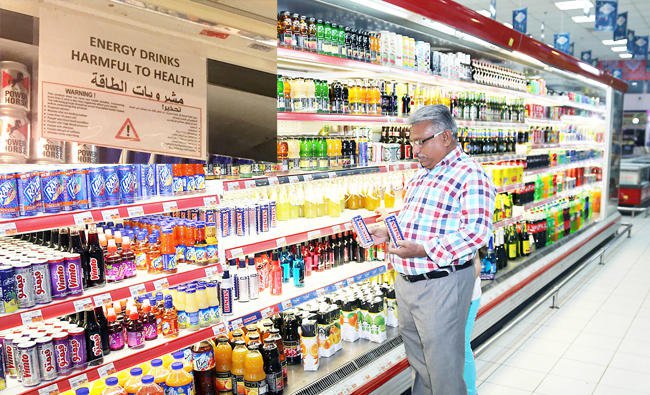
New tax doubles price of cigarettes, energy drinks in Saudi Arabia
Prices of cigarettes and energy drinks have doubled with the implementation of an excise tax that became effective midnight Saturday in a measure unprecedented in the Kingdom.
The excise tax, commonly known as a “sin tax,” is imposed on “unhealthy products” that are likely to cause health problems and eventually increase medical expenses paid by individuals or the government, according to the General Authority of Zakat and Tax (GAZT) official website.
“We’ve communicated with the business sector and have set up many workshops to introduce the selective tax both at the GAZT and the Chamber of Commerce,” Mohannad Al-Madi, who handles public relations for the GAZT, told Arab News.
A few days prior to the implementation, some smokers struggled to find boxes of their usual cigarettes. Consumers attempted to stock up on cigarettes at their pre-tax price, while suppliers were trying to keep the products off the shelves until the prices rose.
“I went to several shops yesterday to buy the type of cigarettes I usually smoke. It was nowhere to be found,” Abdulghafour Ahmed, a middle-aged man who started smoking when he was 18, told Arab News.
Soft drinks were being placed on an empty shelf at one of the main supermarkets in Jeddah that Arab News visited Sunday afternoon. “There was nothing here yesterday,” the shelf stacker said, pointing at the shelf. “Yesterday, the price was normal. But today, a soft drink can is SR2.25 ($0.60).”
This price of a 355ml can of a soft drink matched that of another supermarket Arab News visited. The second supermarket had also kept the newly taxed drinks away from customers so they are sold 50 percent higher in price in the case of soft drinks, and double the price for energy drinks.
Consumers will now pay SR12 at one supermarket for a 250ml can of a popular taurine drink, which is priced at SR11.90 at another supermarket. Aside from tags of doubled priced energy drinks, a new sign has been posted on market shelves stating: “Energy drinks harmful to health.” The full warning matches the text on beverage cans.
The warning, written in English and Arabic, reads: “This product does not have any health benefits. Consuming more than two cans a day may negatively affect your health.” The warning mainly targets individuals under 16 years old, pregnant women, who are breastfeeding, people with heart conditions, individuals with high blood pressure or diabetes, people allergic to caffeine and athletes while exercising.
The tax authority urged producers and suppliers of taxable goods to register for the excise tax, the GAZT official website stated.
The statement read: “The GAZT has stated that every person who possesses excise tax goods should file a return for the transitional period starting Sunday (June 11) and pay accordingly within 45 days, to avoid being subject to legal penalties and fines.”
The taxing body expects to lower consumption by people with limited income of the taxed products after the price hike.
Yet Faizan Haider, a Jeddah-based Pakistani national working at a travel agency, said he would rather cut down on his food purchases than quit smoking.
“I will spend less on fast food and other stuff, but cannot quit smoking,” he told Arab News.
Haider, who has been in Saudi Arabia for 24 years, said that he was “disappointed” that the government has raised taxes on tobacco, “which is pointless.”
Regular smoker and energy-drinks lover 25-year-old Salma Walid, said the move would not make her quit.
“It’s an extra strain on the pocket, but it’s a habit that I can’t just quit or cut down on,” she said.
Walid bought her last pack of the cigarettes she smokes for SR12 one day before the tax into effect. Now it is SR24.
Gulf Cooperation Council (GCC) countries are also set to implement a value-added tax (VAT) of 5 percent on certain goods beginning in 2018.


























